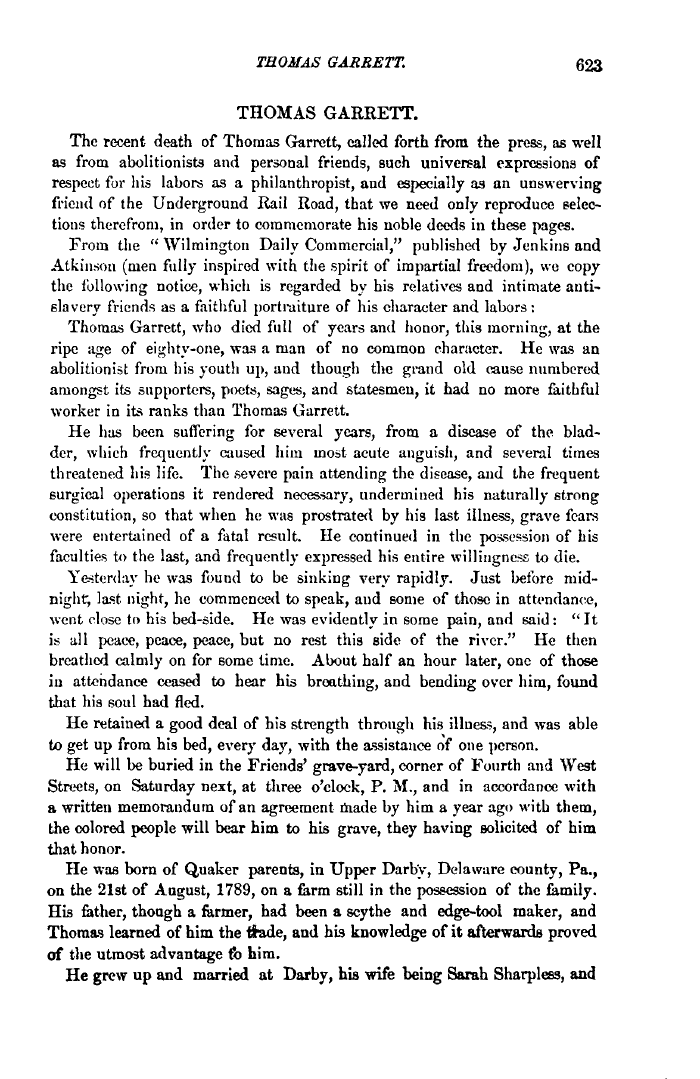 |
||||
 |
||||
| THOMAS GARRETT. 623 THOMAS GARRETT. The recent death of Thomas Garrett, called forth from the press, as well as from abolitionists and personal friends, such universal expressions of respect for his labors as a philanthropist, and especially as an unswerving friend of the Underground Rail Road, that we need only reproduce selections therefrom, in order to commemorate his iioble deeds in these pages. From the " Wilmington Daily Commercial," published by Junkins and Atkinson (men fully inspired with the spirit of impartial freedom), we copy the following notice, which is regarded by his relatives and intimate anti-elavery friends as a faithful portraiture of his character and labors: Thomas Garrett, who died full of years and honor, this morning, at the ripe age of eighty-one, was a man of no common character. He was an abolitionist from his youth up, uud though the grand old cause numbered amongst its supporters, poets, sages, and statesmen, it had no more faithful worker in its ranks than Thomas Garrett. He has been suffering for several years, from a disease of the bladder, which frequently caused him most acute anguish, and several times threatened liis life. The severe pain attending the disease, and the frequent surgical operations it rendered necessary, undermined his naturally strong constitution, so that when he was prostrated by his last illness, grave fears were entertained of a fatal result. He continued in the possession of bis faculties to the last, and frequently expressed his entire willingness to die. Yesterday he was found to be sinking very rapidly. Just before midnight, last night, he commenced to speak, and some of those in attendance, went close to his bed-side. He was evidently in some pain, and said: " It is all peace, peace, peace, but no rest this side of the river." He then breathed calmly on for some time. About half an hour later, one of those in attendance ceased to hear his breathing, and bending over him, found that his soul had fled. He retained a good deal of his strength through his illness, and was able to get up from his bed, every day, with the assistance of one person. He will be buried in the Friends' grave-yard, corner of Fourth and West Streets, on Saturday next, at three o'clock, P. M., and in accordance with a written memorandum of an agreement rtiade by him a year ago with them, the colored people will bear him to his grave, they having solicited of him that honor. He was born of Quaker parents, in Upper Darby, Delaware county, Pa., on the 21st of August, 1789, on a farm still in the possession of the family. His father, though a former, had been a scythe and edge-tool maker, and Thomas learned of him the ttade, and his knowledge of it afterwards proved of the utmost advantage fo him. He grew up and married at Darby, his wife being Sarah Sharpless, and |